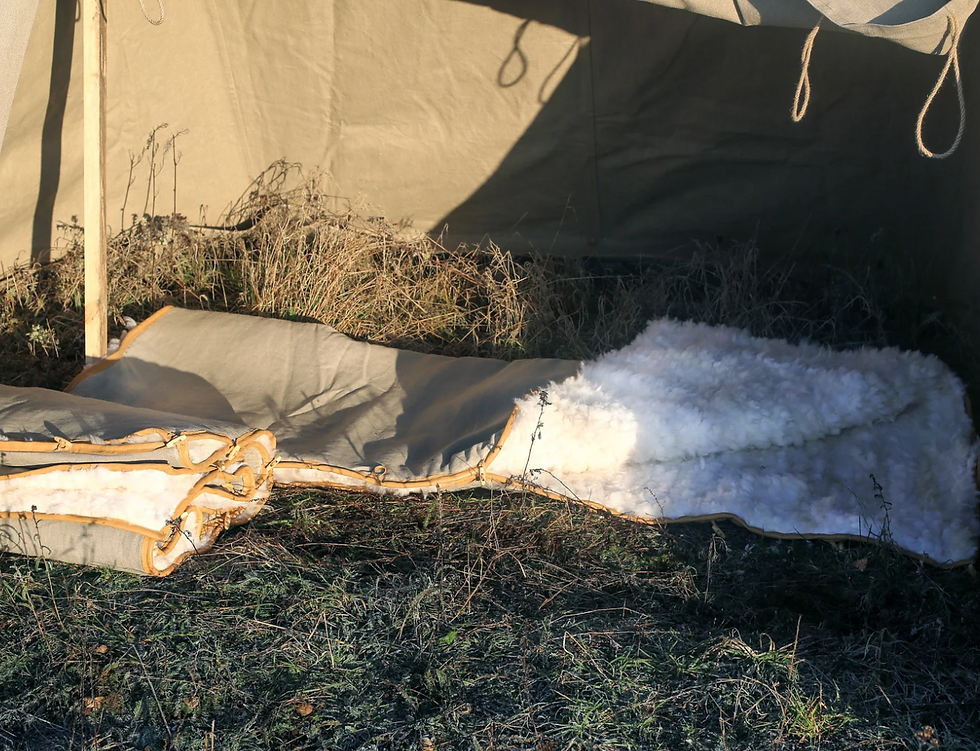How did Vikings Sleep on Longships? (and Medieval Sleeping Arrangements)
- Kyrie

- Oct 29, 2022
- 2 min read
Vikings had nowhere but the deck of their longships to sleep on, rain or shine. But to avoid turning into Viking icicles, they slept in waterproof sleeping bags made of sheepskin and lined with fur.
Aka the Húdfat!
And they slept two men per bag. That's right. Can you imagine two Viking warriors sharing a sleeping bag? But this arrangement was to keep warm.
I was so delighted to learn about the hudfat's room-for-two that I wrote it into the ending chapter of Healer's Blade (Enemy's Keeper Book 1) as a way for my young couple to get closer... *sly smirk*.
Both my male protagonists, Matthew and Toby, are the descendants of Vikings!
As an aside, sleeping in a private bedroom and on a personal bed is a modern luxury. Peasants of the 11th century (towards the end of the Viking age) would not have slept this way, and for several reasons:
1) Nights are cold. Bodies are warm. To keep warm, peasants huddled together on the same bed in the single room of their wattle-and-daub houses.
As for "private" rooms, even wealthy nobles had their favorite servants sleep around their beds.
2) It takes less material to make one big bed than eight smaller ones (assuming two parents and six kids!)

In addition, bed-sharing simply wasn't seen as a strange thing back then.
Strangers shared a bed in inns. The king of France (Philip II) shared a bed with the king of England (Richard the Lionheart) probably as a way to improve PR.
For more on historical beds and sleep habits, including how the nobles carted around their collapsible, four-post beds to show off in an age before private jets and limousines, check out this entertaining video by LindyBeige.

His voice makes washing dishes so much more fun!







Comments